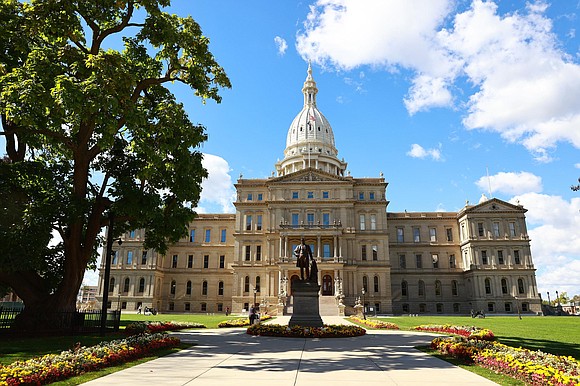'Credible threats of violence' prompt closure of Michigan capitol to the public ahead of Electoral College vote
CNN/Stylemagazine.com Newswire | 12/14/2020, 11:06 a.m.

By Chandelis Duster, CNN
(CNN) -- "Credible threats of violence" have prompted Michigan authorities to close the state capitol to the public and shutter House and Senate offices, a spokeswoman said, on the day the Electoral College will formally declare Joe Biden the President-elect.
"The decision was not made because of anticipated protests, but was made based on credible threats of violence," Amber McCann, the deputy chief of staff and spokeswoman for Republican Senate Majority Leader Mike Shirkey, said in a statement.
Gideon D'Assandro, the communications director for state GOP House Speaker Lee Chatfield, also told CNN Sunday evening that the offices would be closed. He didn't elaborate on the security concern, but said the House and legislative bodies were informed about it by the Michigan State Police, which declined to comment on the matter to CNN.
Citing "safety and security concerns in the downtown Lansing area," a notification emailed to Michigan lawmakers advised staff to work remotely.
"Only those needed for the Electoral College will be permitted in the Capitol Building," says the email, a copy of which was shared with CNN by D'Assandro.
The Electoral College meeting will be streamed via Senate TV, McCann said.
The Electoral College count is typically a routine procedure to formalize the presidential election results, but this year, it has gained a new significance amid unprecedented pressure from President Donald Trump and several Republican allies who have sought to overturn the election in key battleground states -- including Michigan -- that he lost to Biden.
Michigan, in particular, has been an epicenter of tension this year. In the spring, Democratic Gov. Gretchen Whitmer faced heated pushback over pandemic stay-at-home orders, and protesters, some of whom were armed, stormed the Michigan capitol. And weeks before the election, 13 people were charged in an alleged domestic terrorism plot to kidnap Whitmer.
Whitmer and other state Democratic officials have at times blamed Trump for provoking tensions, with the governor writing in an Atlantic op-ed that every time the President attacks her on Twitter, there is a "surge of vicious attacks" and that he is putting women leaders "at risk."
The White House has repeatedly disputed Whitmer's accusations.









